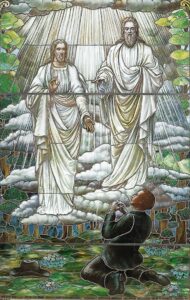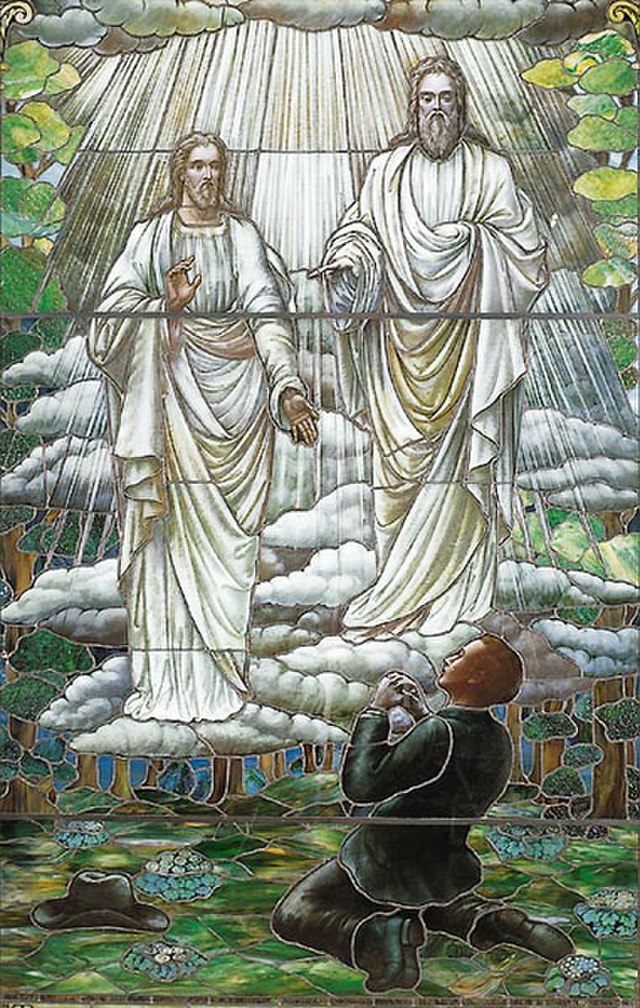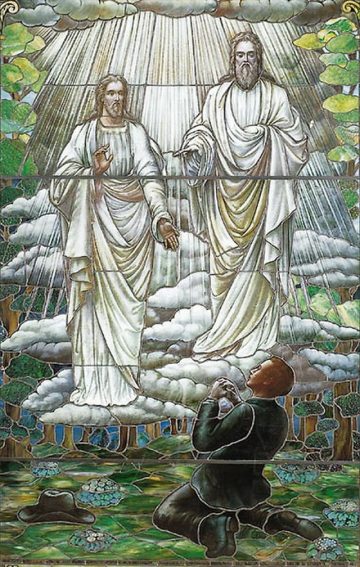Guest Post by Jamie Stokes. Jamie is a reader, runner and writer based in Salt Lake City, Utah.
The idea of a “chosen one” abounds in today’s pop culture. The growth of the Marvel Universe speaks to how much we like stories about human beings who are special, endowed with powers to use for good or evil. “Stan culture”, in which fans follow celebrities so closely it amounts to devotion, is also evidence of our belief in singular, extraordinary individuals.
In the secular landscape, the chosen can be male, female or non-binary, trans or cis, any race. Beyonce, Harry Styles, LaVerne Cox, Ariana Grande, BTS, Taylor Swift, and Lill Nas X are good examples of the diverse array of people who might be “stanned,” worshipped and followed.
We cement idols in our own image. If many types of people are deemed preternaturally cool, stylish and talented, our hope perseveres that someday, we might be too. In a capitalist framework, hero worship is evidence that working a little harder may allow us to be chosen by the masses — celebrated and richly rewarded. Whether or not you believe an economic meritocracy actually exists anywhere in practice, the idea of it at least finds its root in some sort of egalitarianism. Anyone could theoretically be “chosen” if they possess enough vision and drive.

Ancient myths and modern religions also speak to humanity’s fascination with special, chosen groups and individuals. This time, though, the choosing is done by God. This time one’s religious context may significantly impact whether or not they believe they can be chosen to be a special witness of God. In the specific Mormon context, it appears that God’s choice is often predicated on gender.
In thinking about who Mormons believe has been chosen by God throughout history, the most obvious example who comes to mind is Jesus Christ, the Son of God in the flesh. Obviously a man on earth, but perhaps not essentially so. His status as half-man half-God means that he was both chosen by God but also capable of doing the choosing himself. In our records of him, Jesus appears to have been inclusive in his selection of with whom to share his messages. He revealed who he was for the first time to a woman, the woman who we know simply as the woman at the well. Mary Magdalene was the first person to view Christ risen from the dead and walking.
Jesus was rather progressive for His time in who He chose to be special messengers and witnesses. According to most readings of the King James Bible, however, He selected only men to be His apostles. Perhaps the stories of female apostles were scrubbed by the men who wrote the Bible, perhaps men were chosen because of what would have been culturally accepted at the time or perhaps men were the most inherently qualified due to their being men. Either way, such choices, whether heaven or culture-based, have left a long legacy on Christianity and the Mormon Church.
Although we rely heavily on the Bible for our understanding of Christ’s church as it existed in His day, we also rely heavily on the Doctrine and Covenants and testimony of the Church’s founding members for our understanding of who God chooses. In every sense of the implication, we believe Joseph Smith was chosen by God to lead a restoration of His church. As a 14 year old boy, Joseph spoke to God and Jesus Christ who told him that none of the current churches were entirely correct, and that Joseph would be the leader of a new one.
Would Joseph’s questions have been answered if he had been a 14 year old girl? The teachings of our faith express that God is no respecter of persons. The God I believe in would answer the questions of a girl. But the very organization of the Church, the passing of the prophetic mantle from man to man to man, the images of eight men witnessing golden scriptures, and the dearth of women at the top of Church leadership lead me to believe maybe Joseph had to be a boy to get his questions answered. After all, only a boy could start a new Church.
Perhaps this isn’t really God’s fault at all. Maybe, as a resurrected Christ appeared to Mary, God continues to appear to women,but because they are women, people simply don’t believe them. We’re more inclined to take a man’s word for his wisdom than a woman’s. Joseph may have been branded as a heretical witch if he had been Josephine. Even in today’s Mormon culture, we understand men and women as having the same ability to bear witness of Christ, but women are not entitled to use their witness to wield authority in quite the same way men use theirs.
Men derive authority from priesthood power, which men officially hold and women don’t. Many wonderful interpretations of women’s relationship (or lack thereof) to the priesthood have been written, so I hardly need to re-till supple ground. An element of those arguments that I think is often forgotten is what priesthood power means for one’s relationship with God and one’s potential understanding of Him.
In the early days of the Church, it was men who reported seeing Elijah and Peter, James and John. Women often joke that they wouldn’t want the extra responsibility of handling the priesthood, but who wouldn’t want to meet Peter, the rock on whom the Church would be built? Peter returned to Earth to restore the priesthood, and because women weren’t getting it, they had no need to be there.
Similarly, bishops and stake presidents talk about learning from God and seeing people as He does. While such lessons may be open to everyone in theory, the intensive internship portion of the class is only open to men because of the priesthood power they hold. Men have the opportunity to teach and lead with authority, to leave a prophetic legacy that is studied for years and to speak for God. Women are counseled that their personal revelations are not to be publicized as guidance for others.
The question of whether or not women have the priesthood is also, inadvertently, a question of who God wants to formally work with. Who does God want to mentor? Who will He allow to have opportunities to know Him better? My status as a girl and then as a woman means I am not ordained to the priesthood, and therefore won’t need to be in the room when men formally talk to God. I might be chosen for a scholarship, for an award, to perform this essay as a monologue, but I will not be chosen by God to be a bishop, stake president or mission president. As it stands, the Church wants me to nurture my own children, but doesn’t want me to have a formal role in nurturing His. Even in my own home, with my own children, the authority I have is limited by the power my husband has to “preside” over our family.
I know God loves me. The Church tells me God loves me. But elements of Church structure sure make it seem like He doesn’t trust me for some reason.






7 Responses
Thank you for this thoughtful post. I have often wondered why women aren’t “chosen.”
The priesthood authority thing is quite a tangle for me. I see a lot of parallels between Joseph Smith’s first vision and Eve in the garden of Eden. They both went to the woods and found wisdom. They both left disillusioned with the prevailing authority: Joseph no longer believed in the priesthood authority of other churches, Eve…I think she had to have questioned the authority of the god who forbade her to partake of the fruit of the tree of knowledge of good and evil. And if humans are supposed to become gods, I think that’s a normal and necessary thing to do.
“women are not entitled to use their witness to wield authority in quite the same way men use theirs”
I feel this. And if a woman tries to use her witness in the same way, there’s always a man in charge of her that can say she is doing it “wrong”.
So many important points here. This one really stuck out to me: “Men have the opportunity to teach and lead with authority, to leave a prophetic legacy that is studied for years and to speak for God. Women are counseled that their personal revelations are not to be publicized as guidance for others.” Whose words are worth being written, recorded, studied, and passed down?
I remember sitting in primary, maybe about six years old, and the lesson had some inspirational story about a boy who grew up to be prophet and how while out camping, he was warned in the middle of the night to move his sleeping bag. He didn’t understand and it was dark and he was tired, but the feeling kept coming, so he got up and moved to a different location. In the morning, he found a big tree had fallen where he had been sleeping. If he had stayed there, he might have been killed. He learned to heed such feelings and grew up to become the prophet. And I remember thinking, that I would never get such a warning because I would never grow up to be prophet, because I was a girl. I figured that God would just let the tree fall on me, because as just a girl, I wasn’t worth anything to God. I had already heard too many stories about men and boys who grew up to be important and I had learned that I wasn’t, and could never be important to this God. I was a worthless female.
Oh, what a sad and lonely feeling. I’m so sorry.
“Would Joseph’s questions have been answered if he had been a 14 year old girl?”
Sure, God answers the prayers of teenage girls. That said, I can’t even think of one revelation, big or small, received by a female that has changed church doctrine or policy.
There’s certainly no way modern, patriarchy-following Mormons would follow inspiration of a 14-year-old girl.
What about Ellen White, founder of the Seventh-Day Adventists? Her story parallels the life of Joseph Smith in many ways, including claiming many divine visions and revelations?